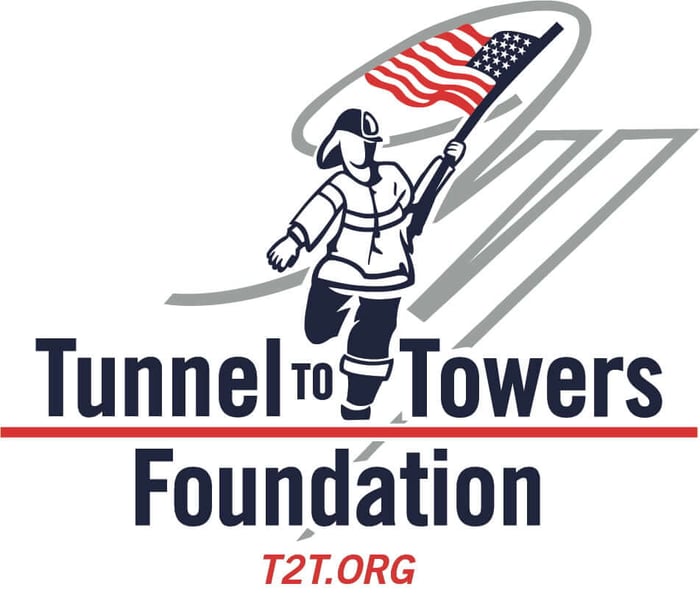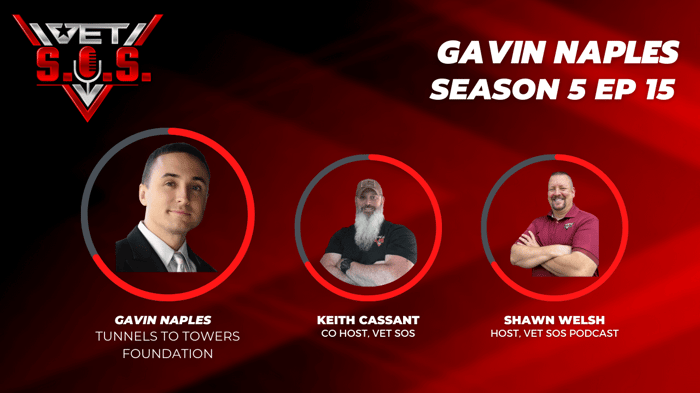Veteran Homelessness: How Tunnels to Towers Is Building Permanent Solutions
Veteran homelessness remains one of the most pressing social challenges in the United States. Despite decades of awareness and countless initiatives, thousands of those who once served in uniform still find themselves without stable shelter. But one organization, the Tunnels to Towers Foundation, is taking bold, innovative steps to combat this crisis—offering not just temporary relief but permanent supportive housing designed to restore dignity and hope.
 Gavin Naples
Gavin Naples
In a compelling episode of the VET S.O.S. Podcast, Gavin Naples, Vice President for Homeless Veteran Programs at Tunnels to Towers, joined hosts Shawn Welsh and Keith to share how the foundation is leading a nationwide movement to end veteran homelessness once and for all.
Honoring a Hero: The Foundation’s Origin Story
The foundation’s mission is rooted in sacrifice. On the morning of September 11, 2001, Brooklyn firefighter Stephen Siller was off duty, on his way to play golf with his brothers. Upon hearing that the South Tower had been hit, he drove to the Brooklyn Battery Tunnel—only to find it closed for security. Undeterred, Siller strapped 60 pounds of gear to his back and ran nearly three miles through the tunnel into Manhattan. He entered the South Tower and never came out. His body was never recovered.
Moved by his courage and selflessness, Stephen’s family gathered around a kitchen table to honor his legacy. From that act of love and purpose, the Tunnels to Towers Foundation was born. Today, the foundation has grown into a $500+ million organization, with 95% of every dollar going directly to programming. And one of its top priorities? Eliminating veteran homelessness in America.
The Reality of Veteran Homelessness
Veteran homelessness isn’t just a statistic—it’s a national failure to honor those who have served. According to recent estimates, more than 35,000 veterans experience homelessness on any given night. Many others live in unstable housing situations, couch-surfing, living in motels, or facing eviction.
What makes veteran homelessness unique is the complexity behind it. Veterans often deal with:
PTSD and mental health challenges
Difficulty transitioning to civilian life
Underemployment or unemployment
Limited access to affordable housing
Lack of awareness of available benefits
As Gavin Naples explained, these barriers often compound, leaving veterans feeling isolated and without options. That’s where Tunnels to Towers comes in—with a mission to build long-term, sustainable solutions for veterans in crisis.
Permanent Supportive Housing: A Game-Changer
Unlike temporary shelters or transitional housing, Tunnels to Towers focuses on permanent supportive housing. Gavin shared that the foundation purchases raw land or converts hospitality properties to build what they call veterans’ villages—safe, stable environments where veterans can rebuild their lives.
“These are not just places to stay temporarily,” said Gavin. “Veterans can live in these communities as long as they want. It’s permanent, safe, and supportive housing.”
What sets these villages apart is the wraparound service model provided completely free of charge to the veterans:
Peer support
Behavioral health services
Case management
VA benefit optimization
Employment assistance
Legal advocacy
This comprehensive approach addresses both the causes and consequences of veteran homelessness, ensuring that residents are set up for long-term success, not just survival.
A Privately Funded Model That Moves Fast
Another key advantage of the Tunnels to Towers model is that it operates without federal or state funding. Every dollar comes from private donors and corporate sponsors. While this may seem like a limitation, it actually allows the foundation to act swiftly without the red tape of government bureaucracy.
“Being privately funded gives us the freedom to move at the speed this issue demands,” said Gavin. “We can respond to need, innovate quickly, and adapt to what works best for each community.”
As a result, Tunnels to Towers has grown rapidly—now employing over 350 staff members and coordinating projects in 15 major U.S. cities, including:
Jacksonville, FL
Atlanta, GA
Charleston, SC
Detroit, MI
Memphis, TN
Their goal? To build 1,500 permanent supportive housing units within the next few years—an aggressive, inspiring effort to reduce veteran homelessness in high-need areas.
Redefining What It Means to Be Homeless
Another hallmark of the foundation’s approach is its inclusive definition of homelessness. Many government programs only serve veterans once they’re on the street. Tunnels to Towers sees things differently.
“We want to stop the bleeding before it starts,” Gavin explained. “If a veteran is couch-surfing, living in a motel, or on the verge of eviction, they need support just as much as someone sleeping in a park.”
This preventative model not only keeps more veterans off the street but also reduces the long-term costs associated with chronic homelessness—like emergency care, hospital stays, or incarceration. It’s smart, compassionate, and effective.
Building a National Case Management Network
To scale their impact, Tunnels to Towers is building a national case management network. Already working with over 2,500 VA agents and organizations like HUD-VASH, the foundation is creating a system that offers veterans access to:
Emergency financial support
Eviction prevention
Utility assistance
Counseling and referrals
This infrastructure ensures that veterans can receive help regardless of where they live—even if there isn’t a veterans’ village nearby. It’s all part of a national vision to end veteran homelessness, not just manage it.
Real Stories, Real Impact
Throughout the podcast, Gavin shared touching stories of veterans who had once lost hope but found purpose and stability through Tunnels to Towers. From families receiving mortgage-free homes to individuals recovering from addiction and PTSD, the foundation’s work is changing lives.
The impact extends to first responders and their families as well. Tunnels to Towers ensures that those who serve our communities—whether through military service, firefighting, or law enforcement—are never forgotten or left behind.
To date, the foundation has:
Delivered over 1,500 mortgage-free homes
Served more than 10,000 veterans
Provided services to over 5,000 children
How You Can Help End Veteran Homelessness
Both Gavin and the podcast hosts encourage listeners to get involved. Whether you’re a concerned citizen, business owner, or fellow veteran, there are many ways to support this mission:
Donate at t2t.org
Sponsor a home or village
Volunteer at events or construction sites
Share the mission on social media
Advocate for veteran housing solutions in your community
Every action counts. Veteran homelessness is a national issue—but the solution starts with local support.
Final Thoughts
The VET S.O.S. Podcast episode featuring Gavin Naples is more than just a conversation—it’s a powerful reminder that veteran homelessness is not inevitable. With vision, heart, and strategic action, we can make it a thing of the past.
The Tunnels to Towers Foundation is doing more than building houses—they’re building futures, restoring dignity, and fulfilling a promise to those who served.
If you're ready to be part of the solution, visit t2t.org and get involved today.
Because every veteran deserves a home.





